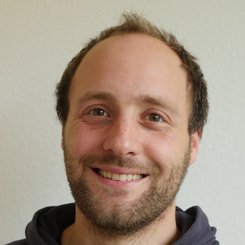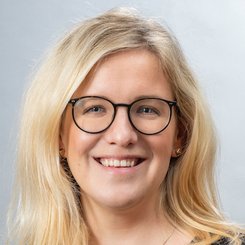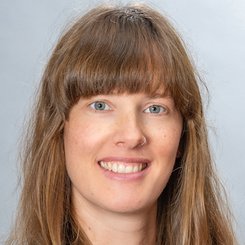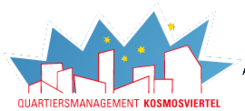Kosmosviertel
Berlin Treptow-Köpenick
The Kosmosviertel residential area is located on the outskirts of Berlin, right on the Berlin-Brandenburg border, next to Berlin-Brandenburg Airport. This residential area of 3 to 11 storey prefabricated buildings is clearly demarcated from the rest of the surrounding neighborhoods, which are mostly single family homes.
good neighbourhood | spaces for encounters
education | public green spaces
With its location on the outskirts, the Kosmosviertel is on the outskirts of Berlin and a good distance away from the lively center.
The area was planned in the 1980s as a social and integrated district and has a large number of green spaces, social facilities and shopping facilities in the basic structure.
The ownership structure of the approx. 3,500 apartments and commercial units in the area is divided almost entirely between two owners: the Altglienicke housing cooperative (approx. 1/3) and the municipal housing company "Stadt und Land", which in 2019 acquired the holdings of a private owner ( approx. 2,500 residential units). The public areas and facilities are owned by the Treptow-Köpenick district. From the 1990s to the 2010s - with the exception of the housing cooperative - only a small amount was invested in maintaining the urban and social infrastructure. The increasing social segregation in Berlin was reflected in the Kosmosviertel by the increased influx of people who could no longer find living space in more central locations, while groups with higher status moved out of the area. The Kosmosviertel is therefore characterized by a very precarious population with a mainly German background, as well as a smaller group of people from Poland or late repatriates.
Since 2015, there has also been an increased influx of people with a history of flight in the Kosmosviertel, both in accommodation for refugees in the vicinity of the area and in regular living quarters.
The social and cultural life is characterized above all by the large number of social institutions in the field of children and youth work, as well as by various institutions that are located in the Altglienicke community center. Furthermore, there is only a low level of civil society actors and informal initiatives in the area.
- Further development of the school site at Pegasuseck (qualification of the main building and education campus Pegasuseck)
- Promotion and strengthening of neighborhood relationships, self-organization and self-help (Hello Kosmos, Kiezladen WaMa, getting older together)
- Low-threshold counseling services and information points (Infopoint for single parents, mobile neighborhood counseling)
- Redesign of the green areas in the Kosmosviertel (construction project "Zukunft Stadtgrün")
- 2015 Start of neighborhood management
- 2017 Establishment of the neighborhood meeting place "Kiezladen WaMa"
- 2019 Start of planning for the redesign of the green spaces (Zukunft Stadtgrün)
- 2021 Mayor development of the school location to the Pegasuseck educational campus
In our work we place a special emphasis on a community-oriented approach in the neighborhood. Both in the context of our own work and through the initiated projects, it is about involving the people from the neighborhood and implementing measures and actions as close as possible to people's everyday lives. In our own work, this is reflected in various low-threshold and outreach formats (stairwell cafés and evening meal events), as well as in actions organized together with the neighbors (annual Christmas market, other festivals, neighborhood help, tournaments, cultural activities).
The main goal of the activities is to support the neighbors in the sense of an empowerment approach in shaping their neighborhood themselves and developing it according to their ideas. Accompanying this, the development of structures for well-functioning neighborhood and cultural work, which further promotes the commitment of people, is a focus of the team's work. In the area of intercultural work, the neighborhood management team is supported by colleagues from the BENN process.
Another focus is the renovation and revitalization of the public green spaces, which play a major role in the district as a place to retreat, lounge, meet and be active. Social projects in the areas of culture, art, sports or gardening should help to ensure that the people can appropriate and shape the space. In order to create the right space for this concern, the central green areas of the Kosmosviertel will be completely redesigned by 2024 after an intensive participation process. At the same time, actions are taking place with the residents so that they can appropriate the space created and use it for themselves.
A final focus is strengthening families. The focus here is on education and work with parents. The aim is, on the one hand, to develop an educational landscape from the many social institutions that supports the classic educational offers and meets the additional needs of the children and families on site. On the other hand, children, young people and above all parents should be supported by the facilities, but also by accompanying structures and parent initiatives, in order to be able to meet the diverse requirements in their everyday lives and to actively help shape their living environment.
2016
start
Contact



